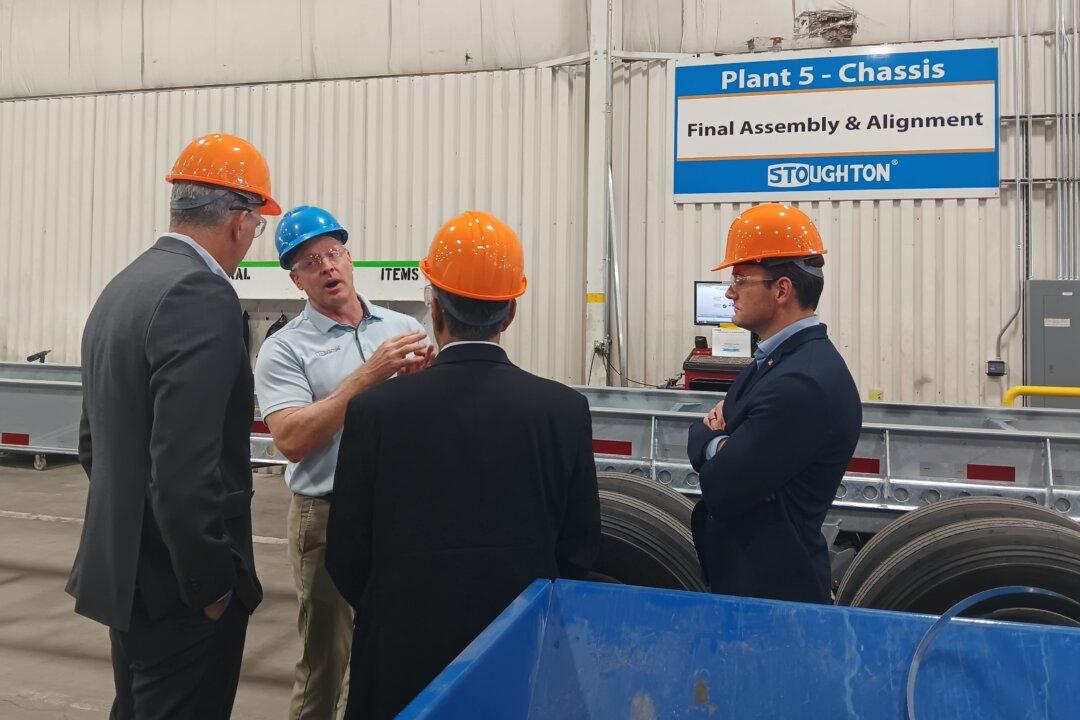STOUGHTON, Wis.— In a cozy, upper Midwestern industrial town, something a little unusual happened on Aug. 30, when representatives from both major parties along with industry and labor representatives came together to recognize a common threat.
“China has a plan to replace the United States, and they’re working on it every single day,” Rep. Darin LaHood (R-Ill.) told The Epoch Times on the factory floor at Stoughton Trailers, a manufacturer of dry vans, grain trailers, and similar products.





